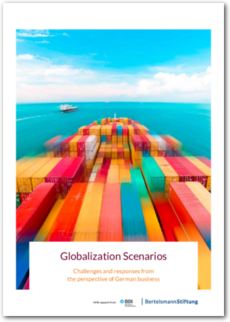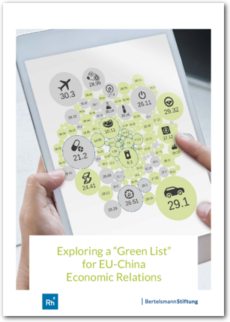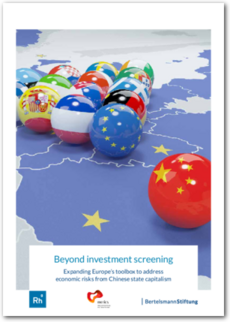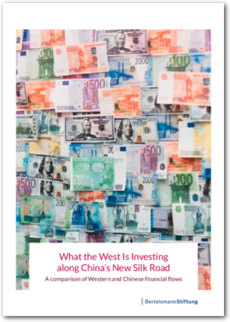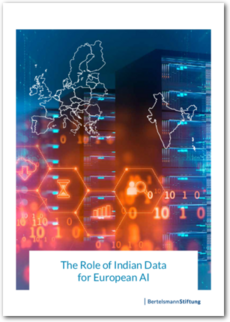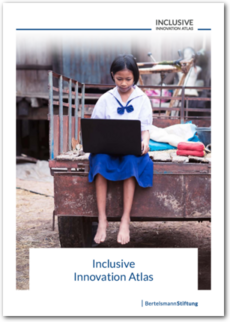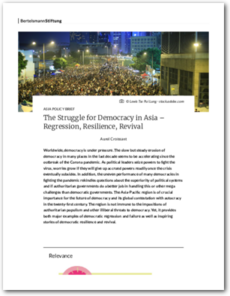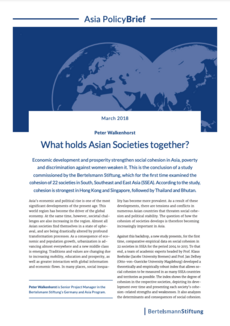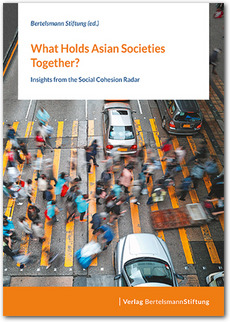The rise of Asia, especially the economic, political and social developments in China and India, have fundamentally changed the world over the last decade. Germany and Europe have also had to adjust to new challenges. The "Germany and Asia" program has produced numerous analyses on this from 2012 to 2021 and developed policy recommendations together with stakeholders from business, politics and academia.
Through academic studies, policy briefs, workshops and public events, the program has enabled German actors to build Asian expertise, network and exploit the opportunities of interdependence together with Asian partners for mutual benefit. In this way, it helped promote a factual and constructive discourse on the implications of Asia's rise and make it a core part of the discussion on Germany's future. The program's work focused on economic and political developments in China and India and the question of social cohesion in these and other Asian countries. In recent years, the systemic rivalry with China has also gained increasing importance.
Country Focus China
In no other country has the dynamic of change in Asia been more evident than in China. The country's rapidly growing economic power has transformed it from a favored trading partner of the West to an economic and technological competitor, defending its economic and political interests with increasing intransigence. China's emergence as a new economic and political world power has simultaneously shaken regional and global power relations and poses a challenge to the international order. On the regional page Country Focus China, our studies and analyses on these developments are compiled.
Country Focus India
India has become an indispensable player in the globalized world. Transformation processes in economy and society have shaped the country in recent years. Germany would like to diversify its relations in the Indo-Pacific region and places great hopes in the subcontinent. At the same time, the rise of Hindu nationalism threatens the cohesion of Indian society. An overview of studies and analyses on India can be found on the regional page Country Focus India.
Social Cohesion in Asia
Over the past decade, nearly all Asian societies have undergone rapid, often dramatic socioeconomic, cultural, and political transformations that continue to have profound effects on the social fabric. Against this backdrop, the program undertook a multi-year project on social cohesion in Asia, which for the first time produced comparable empirical data on 22 states in South, Southeast, and East Asia (SSOA) for the period 2004-2015. In addition, the influencing factors and effects of social cohesion were analyzed, and policy recommendations were developed on how to strengthen it.
Systemic Rivalry with China
Authoritarian systems that see themselves as a counter-model to liberal democracy are increasingly challenging democratic states. China is particularly significant in this regard. As an economically successful, technologically advanced autocracy and a geopolitically ambitious power, China poses a challenge to liberal democracies and their underlying values. Against this background, the program has initiated a series of viewpoints and short essays in which experts discuss what choices are necessary regarding systemic rivalry with China.
The Bertelsmann Stiftung's current Asia-related activities are taking place within the framework of the "Sovereign Europe" project, which examines Europe's critical economic dependencies, particularly with regard to China and the United States. The aim of the project is to develop strategies to strengthen the EU's ability to manage its dependencies, for example by diversifying economic relations with states in the Indo-Pacific region. For more information, please visit globaleurope.eu.
All publications of the completed program "Germany and Asia" can be found here.


